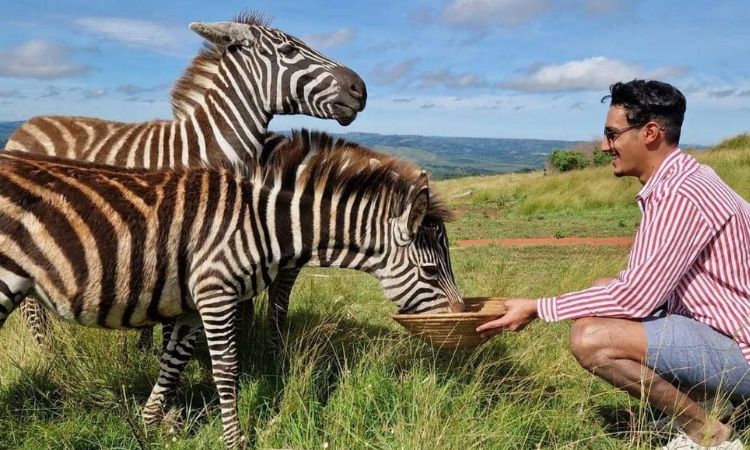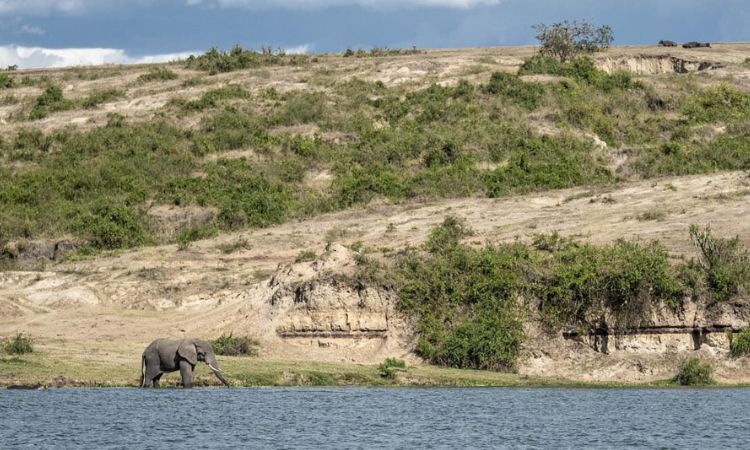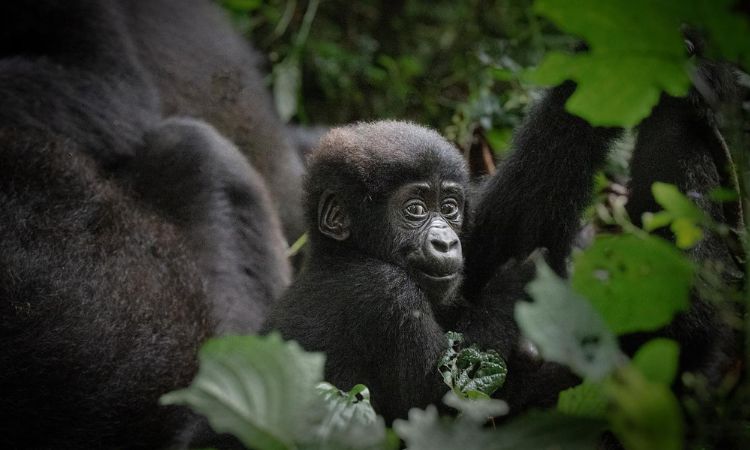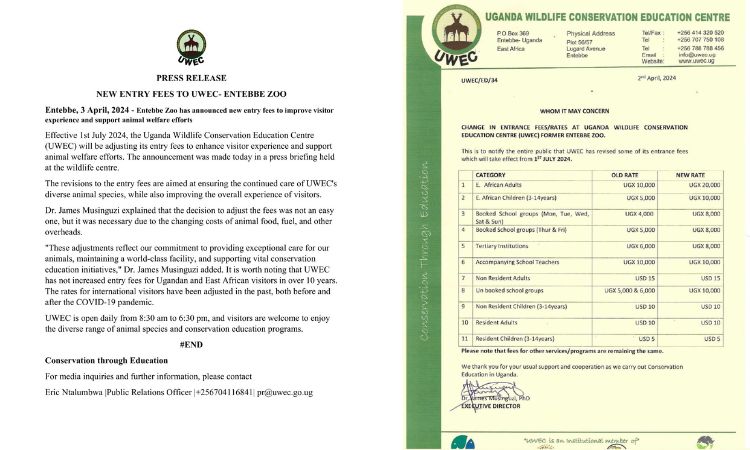How Safe Is an African Safari, Especially in Remote Areas?
How Safe Is an African Safari: An African safari is a bucket-list adventure, but many travelers wonder, how safe is an African safari? At All Uganda Safaris Ltd., we’re here to reassure you: African safaris are generally safe when booked with reputable operators like us.
Safety concerns often revolve around wildlife encounters, health risks, and political stability, but with proper planning and expert guidance, your safari can be both thrilling and secure.
This guide covers everything you need to know about African safari safety tips, from wildlife precautions to health measures, ensuring a worry-free experience for families, solo travelers, and adventure enthusiasts.
Wildlife Safety on Safari: Staying Secure in the Wild
One of the biggest concerns for first-time safari-goers is wildlife safety on safari. The idea of being near lions, elephants, or rhinos can feel daunting, but rest assured, strict safety protocols are in place. At All Uganda Safaris Ltd., our trained guides enforce rules to keep you safe, including:
- Staying in vehicles or designated areas: Open safari vehicles are designed to keep you at a safe distance from animals while offering unobstructed views. Never exit the vehicle unless instructed by your guide.
- Maintaining safe distances: Guides are experts at reading animal behavior and know how close is too close.
- No feeding wildlife: Feeding animals is strictly prohibited, as it can provoke unpredictable behavior.
Incidents involving wildlife are extremely rare. Our guides undergo rigorous training to anticipate animal behavior and ensure your safety.
For example, in Uganda’s Murchison Falls National Park, our team has safely guided thousands of tourists through game drives, with no major incidents. By following your guide’s instructions, you’ll enjoy breathtaking wildlife encounters without risk.

Health and Medical Safety: Preparing for a Healthy Safari
When planning your trip, health and safety on African safari is a key consideration. Here’s how to stay healthy during your adventure:
Vaccinations
Most safari destinations, including Uganda, Kenya, and Tanzania, require or recommend vaccinations such as yellow fever, typhoid, hepatitis A and B, and tetanus. Check with your doctor or the CDC at least 6–8 weeks before travel to ensure you’re up to date.
Malaria Prevention
Malaria is a concern in some safari regions, but it’s easily preventable. Take antimalarial medication as prescribed, use insect repellent, wear long sleeves and pants during dawn and dusk, and sleep under mosquito nets provided by lodges. Many of our safari destinations, like certain reserves in South Africa, are malaria-free, making them ideal for families or those seeking extra peace of mind.
Travel Insurance
We strongly recommend comprehensive travel insurance that covers medical emergencies, trip cancellations, and evacuation. This ensures you’re prepared for any unforeseen circumstances.
Medical Facilities
Major safari destinations like Queen Elizabeth National Park or Serengeti National Park have nearby medical facilities for emergencies. All Uganda Safaris Ltd. partners with lodges and camps equipped with first-aid kits and trained staff, and we provide clear evacuation plans for serious situations.
Lodges and Camps Security: A Safe Home in the Wild
Staying in safari lodges or tented camps is part of the adventure, but is it safe? Absolutely. At All Uganda Safaris Ltd., we prioritize your security with:
- On-site guards: Most lodges and camps have 24/7 security personnel to monitor the premises.
- Safe accommodations: Tents and cabins are designed with sturdy materials to protect against environmental elements and wildlife. Many have raised platforms or fenced perimeters.
- Nighttime escorts: For your safety, guides escort you to and from your tent or cabin after dark, especially in unfenced camps where wildlife may roam.
For example, our partnered lodges in Bwindi Impenetrable National Park offer secure, comfortable accommodations with trained staff to ensure your peace of mind.
Political and Travel Safety: Choosing Stable Destinations
When asking, is it safe to go on safari in Africa?, travelers often worry about political stability. Popular safari destinations like Uganda, Kenya, Tanzania, South Africa, Botswana, and Namibia are well-established tourist hubs with stable governments and thriving tourism industries.
At All Uganda Safaris Ltd., we operate in Uganda and neighboring countries, where tourism is a priority, ensuring safe and welcoming environments.
Before booking, check government travel advisories, such as those from the U.S. State Department or WHO, for up-to-date information. Our team at All Uganda Safaris Ltd. stays informed about local conditions and will guide you to the safest destinations and routes.

Is Safari Safe for Families and Solo Travelers?
Family-Friendly Safaris
Many wonder, is safari safe for families? Yes, safaris can be a fantastic family adventure! We offer kid-friendly experiences, such as private vehicles for more flexibility and malaria-free reserves like South Africa’s Madikwe Game Reserve.
Our guides are trained to engage children with educational activities while keeping safety first. Lodges often provide family suites and kid-oriented programs, ensuring everyone enjoys the trip.
Solo Traveler Safety
For solo travelers, especially women, we take extra precautions. Our group tours foster a sense of community, and private safaris are available for those seeking more independence.
Female travelers can feel confident with our vetted guides and secure accommodations. We also provide pre-trip briefings to address any concerns, ensuring solo traveler safety on safari.
Practical African Safari Safety Tips
To maximize your safety, follow these practical tips from All Uganda Safaris Ltd.:
- Listen to your guide: They are experts in local wildlife and conditions.
- Stay in designated areas: Wandering off trails or into restricted zones can be dangerous.
- Wear neutral clothing: Avoid bright colors or patterns that might attract animals.
- Secure valuables: Use lodge safes to store passports, cash, and electronics.
- Follow park regulations: Each park has rules to protect both visitors and wildlife.
By adhering to these guidelines, you’ll ensure a safe and enjoyable safari experience.
Safety Checklist for Your African Safari
|
Safety Aspect |
Action |
|
Wildlife Safety |
Stay in vehicle, follow guide’s instructions, avoid feeding animals. |
|
Health Precautions |
Get vaccinations, take antimalarials, use insect repellent. |
|
Travel Insurance |
Purchase comprehensive coverage for medical emergencies and cancellations. |
|
Lodge Safety |
Choose accommodations with guards, escorts, and secure structures. |
|
Political Stability |
Check travel advisories and book with reputable operators. |
|
Personal Safety |
Wear neutral clothing, secure valuables, follow park rules. |
This checklist ensures you’re prepared for a safe safari adventure. For more details, explore our safari itineraries.
Frequently Asked Questions About African Safari Safety
Is it safe to go on safari with kids?
Yes, safaris are safe for kids when booked with family-friendly operators like All Uganda Safaris Ltd. Private vehicles and malaria-free reserves ensure a secure, enjoyable experience.
What should I do if an animal approaches the vehicle?
Stay calm, remain seated, and follow your guide’s instructions. Guides are trained to handle such situations safely.
Are night game drives safe?
Night drives are safe with experienced guides who use spotlights and know animal behavior. Always stay in the vehicle and follow protocols.
Is malaria common in safari destinations?
Malaria risk varies by region. Preventative measures like medication, repellents, and mosquito nets significantly reduce risk. Some areas, like parts of South Africa, are malaria-free.



